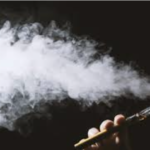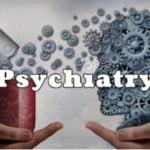As a culture, we are so comforted by Ockham’s Razor that it has become our way of life. If we accept the simplest explanation in all cases, how much easier our lives are. The danger is that we reduce complex issues to an insufficient understanding, and rationalize our denial of responsibility.
Case in point: Male aggression is caused by testosterone. The vast majority would agree, but here I am with inconvenient truths, pesky science and those nagging facts that are incongruous to the simple answers we’d all like to believe.
Testosterone is now commonly labeled as the reason for male aggression and toxic hyper masculinity. All too simply, it is also blamed for risk taking behavior, loving to compete and striving to dominate. The lifeblood of manhood.
It is true that testosterone has an impact on the brain. For example, the presence of normal levels of testosterone make effort rewarding. But, this is in part because testosterone and dopamine are strongly connected. Dopamine is the chemical that drives effort and is influenced by testosterone.
However to attribute these other behaviors to a single hormone is incredibly simplistic. The hormone itself is much more nuanced and connected with many other hormones and neurotransmitters. In addition, aggression is so multi determined that each particular incidence must be looked at through its own unique lens.
What seems to be more central to the issue is the pervasive lack of emotional coping skills evident in male children, teenagers and young men. Aggressive behavior in boys and men can be directly tied to their emotional regulation skills - far more directly than testosterone or other hormones. In fact, in boys with high levels of emotional regulation, we see a decrease in their testosterone reactivity.
Many studies are now supporting that testosterone levels predict nothing about who is going to be aggressive. In his extensive work, Robert Sapolsky has strongly affirmed that “fluctuations in testosterone levels within one individual over time do not predict subsequent changes in the levels of aggression in that one individual“. As much as we want to believe it, there is far less correlation between aggression and testosterone levels than we previously thought.
It is the behavioral differences the drive the hormonal changes rather than the other way around. (I am of course excluding the professional bodybuilding and strength community who inject massive amounts of extra testosterone in super physiological dosages into their bodies. These levels are neurotoxic and in fact do produce enhanced aggressive states.)
How do we understand this? It starts with newborn infant boys. Studies show parents respond more slowly and less frequently to cries from their infant boys compared to their girls. Toddler boys, when they begin to cry, are told to “act like a man." As they grow up into school age and begin to struggle with emotions they are told to “stop acting like a girl“. Boys emotions are ignored, neglected, feared, and treated with contempt.
It is my strong contention that we are conditioned within families, schools, and society, to neglect, ignore, and then isolate our boys and our young men from their emotions. There is a very prominent and powerful vein that runs through our culture to ignore the emotionality of our young men. Having been humiliated for having strong feelings, boys grow up with few skills to recognize, accept, acknowledge, and regulate their own feelings.
As a result, it becomes nearly impossible for young men to be emotionally resilient, to process and understand their own emotions and to emotionally interact with others. What happens to the emotions denied or suppressed by our boys? It often becomes so pressurized that it expresses itself in self destructive ways, and in aggressive behavior toward others. When we treat a boy’s emotional life as something to ignore or be ashamed of, we produce young men who shame others, who deny emotions, and who potentially become explosive.
From a neuroscience perspective, these are all “middle of the brain” circuits that ultimately feed into the HPA axis. Lack of emotional regulation leads to constant chronic stress. This is where we should be looking when we speak about aggression. Will exogenous high doses of testosterone amplify this? Undoubtedly. Yet does testosterone cause the aggression? Undoubtedly, no. As healers, we must approach everyone with a completely integrated mindset of mind/ brain/ physiology/ behavior/ interpersonal connection. When we silo these disciplines, we lose sight of important truths.



